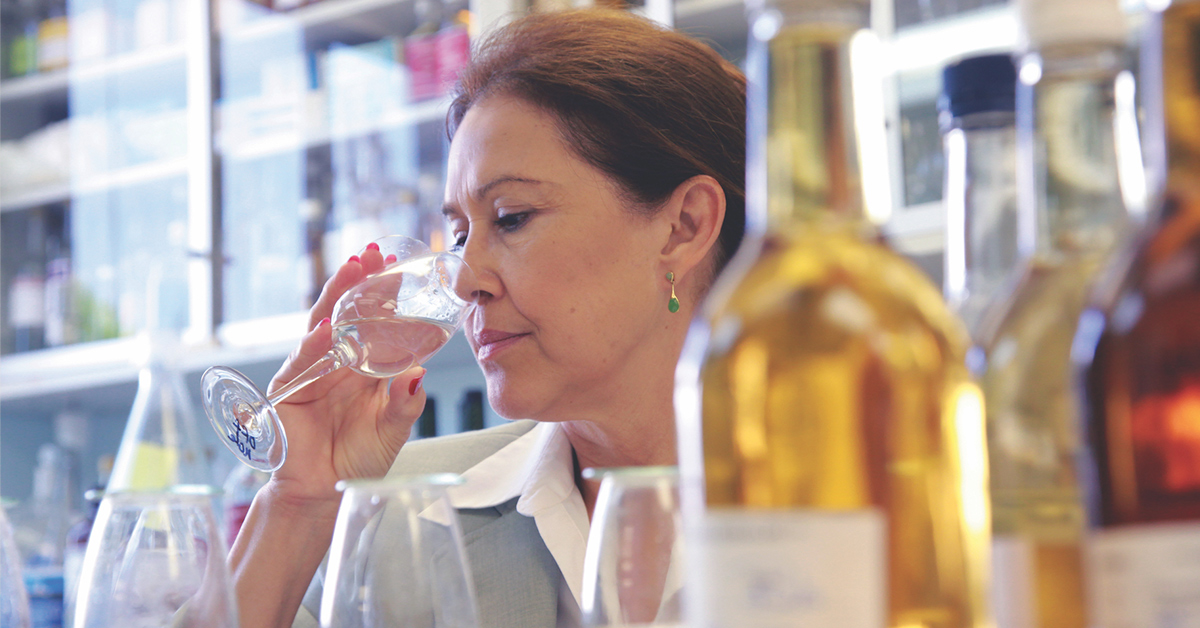
We chatted with Santiago about the ways trends influence her release strategy, what’s changed for women in rum, and how to balance innovation and tradition. Answers have been lightly edited for clarity and length.
What trends or developments in the rum industry capture your interest and what excites you about the future of the category?
We are excited because we see younger generations are looking for new things in spirits, they are trying new products, and they like to learn. It’s not only about how to drink it, but they want to know, where does it come from? How is it made? Who’s the owner, and is there something special about it? So it’s an opportunity for us to teach them, to educate them, and that is really needed because there are a lot of misconceptions about rum. It’s also a good opportunity for the category of rum because they want innovation.
How do you balance the traditions of a 150+ year-old company and innovation?
Definitely we believe in the traditional way of making rum and that’s important for us. That means you don’t cut corners, there are certain things that you have to do. For example, aging requires time. If you want a good character rum, with body, with taste, you need to allow those reactions during the aging process to happen.
But we must innovate, because if we don’t innovate, we lose the market. The marketing people help us a lot because they are the ears of the company. They listen to the customers, they listen to the market and they bring us what the market is asking for, so that we can then work here in our laboratory, trying to produce those things that the market is looking for. But it’s kind of a delicate balance between tradition and innovation. You can innovate, but really you cannot put the quality of the product at risk.
Are there ways those consumer trends have impacted your strategy recently?
Flavors are always a trend that’s moving and driving the market. But that flavor must really match with the rum. And not necessarily all the flavors that are trending match with the profile of rum. I’m not just talking about juices or different fruits. To add another finish to the product is also adding flavor. Adding a different flavor of wood to the rum, for example. Also, now that the younger generation is looking for cocktails, we also work very closely with mixologists and bartenders. So when we have a new rum on the line we work with some of those bartenders and mixologists and allow them to play with the product to see if they can create new drinks, because then we know the product will be accepted by this customer.
What has changed (and what hasn’t changed) in the rum industry for women since you started?
I remember when I began here, and for many, many years, women didn’t accept rum as a drink for a woman. It was like a macho drink. Mixologists helped change that, and now more women are drinking it neat. At the plant, I was the first woman to work here. Now in the manufacturing area 50% of our people are women. But women were always involved in the business of rum, but they were in the background. They were working in a silent mode. But now they are coming to the front, speaking out, and they are being seen. There are a lot of women working in companies as master blenders now.
Has the role of maestra ronera changed over the years, how?
Before it mostly required experience, but now because we are incorporating more and more science and technology into the business, you need a more formal education. Also, we have been changing into the face of the company more. That’s important because you are representing the brand and that incorporates new learning. We have to learn marketing, we have to learn communications, we have to learn how to have a public image. A lot of those things we never thought about because we were just involved in making rum. But this is something that because again, the market is looking for more education, maestros roneras and roneros are going out to do presentations and educating the market on our products.
What lessons have you taken away from being in one category of spirits for so long?
We should never stop learning, especially for women. No matter what position you are in, if you have knowledge of the processes, then you can solve problems and you get people’s respect. When we stop learning it’s like dying. And things are changing so fast that really you have to keep your ears open and your mind open to new things and new trends, no matter who you are or how long you have been in the business.